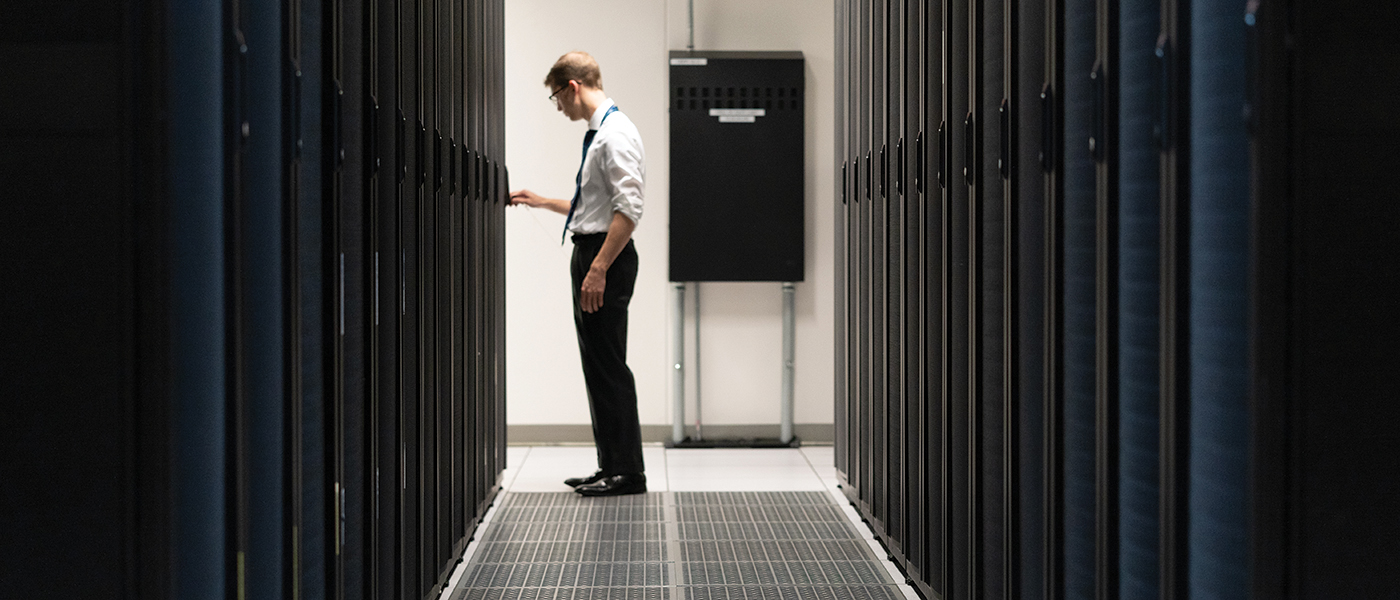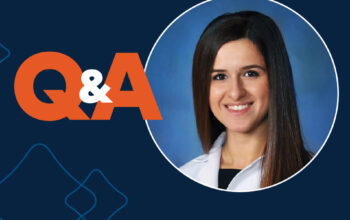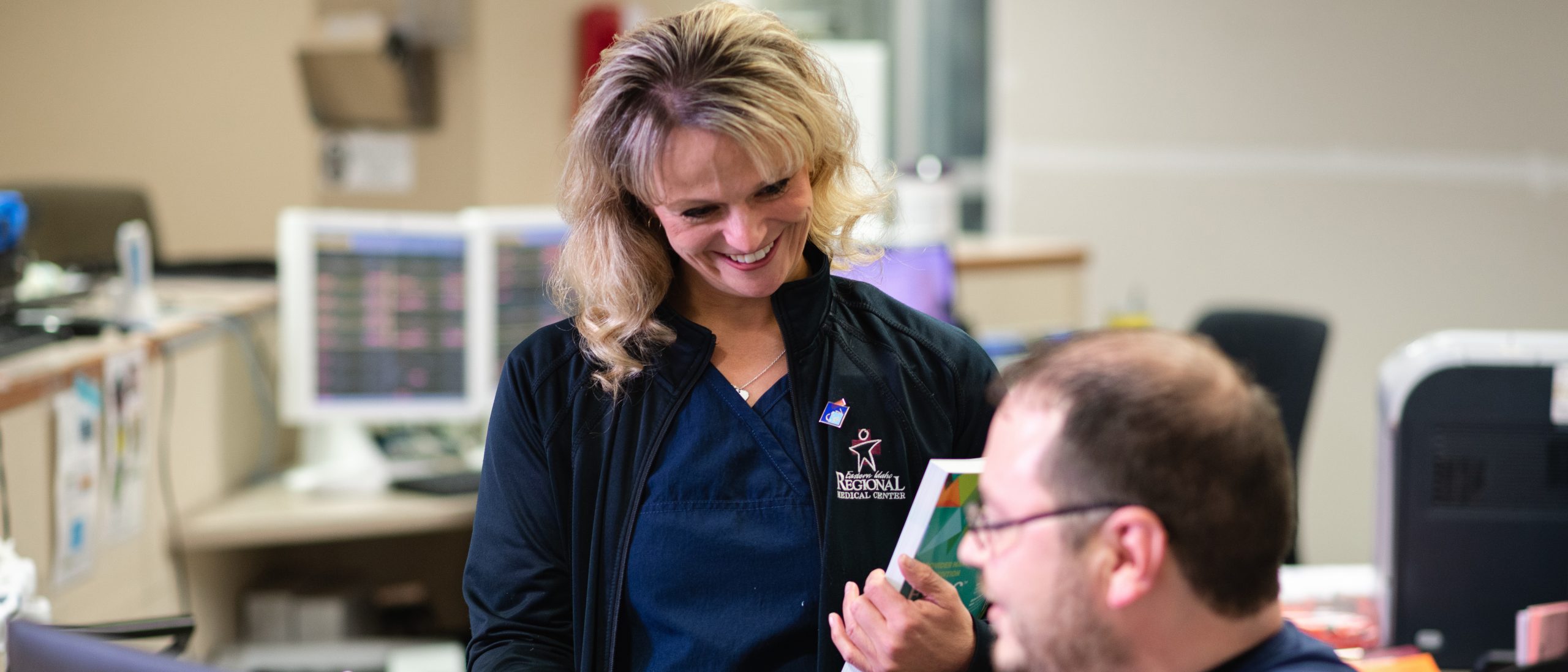Data is key in responding to COVID-19.


It’s easy to see the critical roles our physicians, nurses and other front-line staff play during a prolonged public health emergency. But many colleagues are behind the scenes—including a dynamic, innovative group of business intelligence specialists, software developers and scientists led by Chief Data Officer Dr. Edmund Jackson.
Part of the Clinical Services Group, his team has invested countless hours developing products to support COVID-19 preparedness and response, devising ways to leverage the value of statistics to help keep our colleagues safe and ensure the best care for patients. One of the newest tools—the COVID-19 National Response Portal (NRP)—resulted from a partnership between HCA Healthcare, Google Cloud and SADA Systems. It enables healthcare providers to securely share anonymous numbers pertaining to ICU bed and ventilator supply and use, test results and total visits to U.S. hospital systems.
Here, Edmund discusses the data science team’s important work during this extraordinary time.

Edmund Jackson, Ph.D., Chief Data Officer, HCA Healthcare, Nashville, Tenn.
How has COVID-19 altered what you do every day? Presumably it’s been a challenge unlike any other.
Edmund: In the same way that [former U.S. Defense Secretary] Donald Rumsfeld spoke about ‘unknown unknowns,’ COVID-19 feels like an ‘unlike unlike.’ It’s unlike everything else that was unlike normality before. We’ve all learned how to operate in much leaner, faster ways, and my teams have formed bonds with other teams that weren’t there before. We’re a stronger team of teams coming out of this first phase of COVID-19 than going into it.
What is your main task in assisting colleagues at the hospital level who take care of COVID-19 patients?
The data science teams focus on bringing our colleagues actionable data and analysis. So our main contribution to the COVID-19 effort was coroNATE, which provided real-time, organized intelligence around COVID-19 patients for every bed in the organization. The other piece was collaborating with leadership to create projections of the likely COVID-19 impact in our hospitals over time. By combining the operational experience, skills and data of the enterprise, we gained confident, early insight that this was not going to be as bad as many expected, which enabled us to react efficiently and well.
We use coroNATE daily, as the technology helps us to more accurately predict volume changes and ensure that our team is better prepared for the urgent needs of our patients.— Scott Montgomery, COO, Lakeview Regional Medical Center, Covington, La.
Is there an aspect of your “usual” job—or any training or experience—that helped prepare you for this?
The central element of HCA Healthcare’s preparation was having trust in another [person] already in place. We have the great strength of many tenured people who have faced a lot together, so they can mobilize and execute rapidly because they know and trust another’s expertise. This was really on display throughout the organization during the response. We were not specifically prepared for COVID-19, but we are always ready for whatever comes at us. For data science, I’d say the team’s prior focus on building platforms put us in a good place when the pandemic hit. We spent two years building the platform [SPOT—Sepsis Prediction and Optimization of Therapy—into NATE] so when we needed new products every two weeks, we were able to deliver. That and the existing dedication and spirit of the team prepared us to go to war together against COVID-19.
The data portal sounds like a major development. Can you compare it to the impact that SPOT has hadon the clinical side?
The NRP was conceived in the early days of the pandemic, when we realized that we needed to be able to coordinate in a low-friction way with our sister healthcare facilities through a shared, open national data platform. We were preparing for scaled, high-stress coordination under surge conditions. Fortunately, the surge we feared was suppressed through really effective social distancing, so the initial need for the NRP has dissolved. However, the question now is about the national restart. I foresee the NRP serving as an impartial, data-based platform to manage the reopening and detect any resurgences early.
Is there a primary lesson learned from all of this?
It’s not a new lesson, but another example of HCA Healthcare living up to our mission. I’ve participated in normal and emergency operations several times now, and the organization always turns up the same way with vigor, resources and absolute dedication to patient care. Beyond that, we’ve now sustained operating with previously unthinkable speed and precision. That sets a new bar, and, as I said earlier, gives us the keys to post-COVID-19 success.
(Pictured at top of page: Daniel O’Neal, Systems engineer, Crossings Data Center, Antioch, Tenn.)


